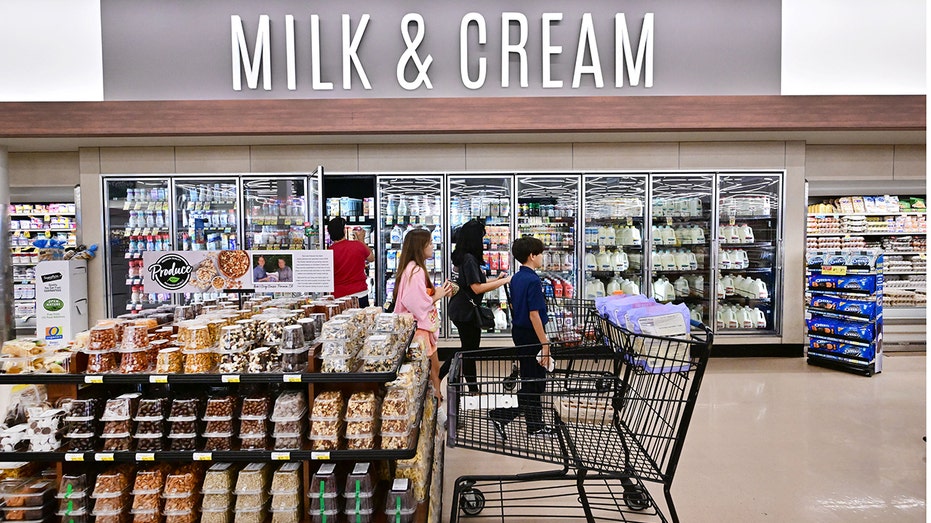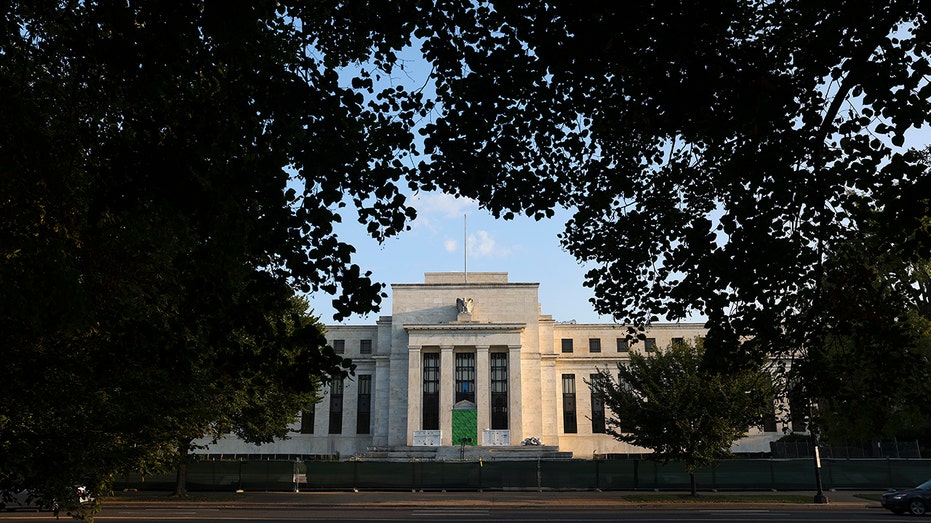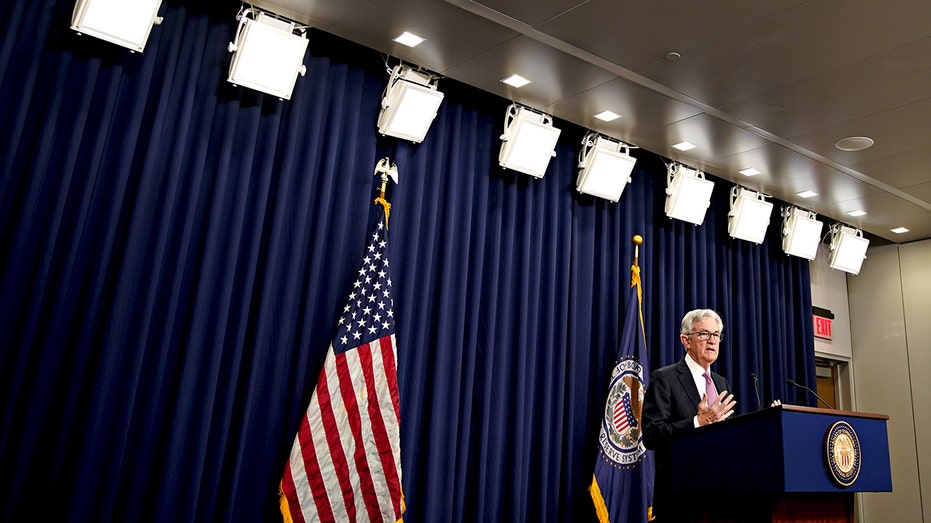US recession odds rise to 100% as inflation squeezes the economy
Hawkish Fed, inflation weigh on US economic outlook
Bloomberg economic model warns of coming recession
'Kennedy' panelists Inez Stepman, Jessica Tarlov and Scott Horton discuss a Bloomberg economic model predicting a 100% chance of recession within the next twelve months.
There is almost near certainty that the U.S. economy will enter a recession within the next year, according to a new statistical analysis from Bloomberg Economics.
The probability modeling forecasts a 100% chance of the economy hitting a downturn by October 2023. That is up from 65% for the same period of time in the previous update of the model.
The forecast will likely be unwelcome news for President Biden, who has repeatedly maintained that the U.S. will avoid a recession and that any downturn will be "very slight" as he seeks to assuage voter fears about the state of the economy ahead of the pivotal midterm elections.
"I don’t think there will be a recession. If it is, it’ll be a very slight recession," the president said last week during an interview on CNN. "That is, we’ll move down slightly."
INFLATION SURGED MORE THAN EXPECTED IN SEPTEMBER AS PRICES REMAIN PAINFULLY HIGH

Shoppers walk through the milk and cream section of a supermarket in Montebello, California, on August 23, 2022. ((Photo by FREDERIC J. BROWN/AFP via Getty Images) / Getty Images)
But there is a growing expectation among economists that the U.S. will tumble into a recession as a result of the Federal Reserve's interest rate hikes, scorching-hot inflation and the war in Ukraine. The U.S. central bank has embarked on one of the fastest monetary tightening paths in decades as it seeks to wrestle consumer prices that are still running near a 40-year high back to 2%.
Officials in September approved a third consecutive 75-basis-point rate hike, lifting the federal funds rate to a range of 3% to 3.25% – near restrictive levels – and indicated that more super-sized increases are coming.
FED BARRELS TOWARD ANOTHER 75 BASIS POINT RATE HIKE AS HIGH INFLATION PERSISTS

The Marriner S. Eccles Federal Reserve Board Building is seen on September 19, 2022 in Washington, DC. ((Photo by Kevin Dietsch/Getty Images) / Getty Images)
In a troubling development, however, the Fed's rate hikes have so far failed to tame inflation: The government reported last week that the consumer price index soared 8.2% in September from the previous year, faster than expected. Even more concerning, core prices – which exclude more volatile measurements of food and gas – jumped 6.6%, the fastest since 1982.
That indicates the Fed will have to continue charting its aggressive course, raising the odds that it crushes consumer demand and causes unemployment to rise.
Economic growth already contracted in the first two quarters of the year, with gross domestic product – the broadest measure of goods and services produced in a nation – shrinking by 1.6% in the winter and 0.6% in the spring, signaling the start of a technical recession.

Jerome Powell, chairman of the U.S. Federal Reserve, speaks during a news conference following a Federal Open Market Committee (FOMC) meeting in Washington, D.C., U.S., on Wednesday, May 4, 2022. (Photographer: Al Drago/Bloomberg via Getty Images / Getty Images)
Fed Chair Jerome Powell has all but conceded the central bank will tip the economy into a recession with its rapid rate hikes, warning that higher rates will cause economic "pain."
GET FOX BUSINESS ON THE GO BY CLICKING HERE
"The chances of a soft landing are likely to diminish to the extent that policy needs to be more restrictive or restrictive for longer," Powell told reporters in Washington in September. "Nonetheless, we’re committed to getting inflation back down to 2%. We think a failure to restore price stability would mean far greater pain.





















